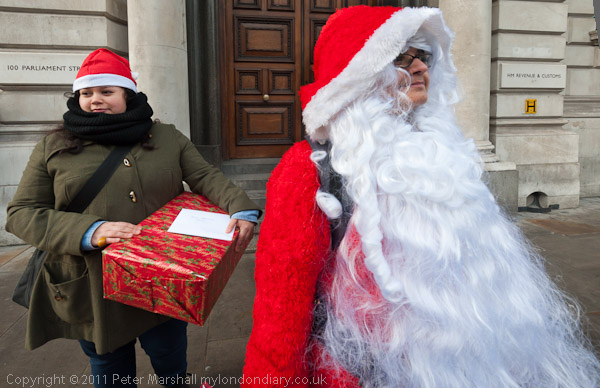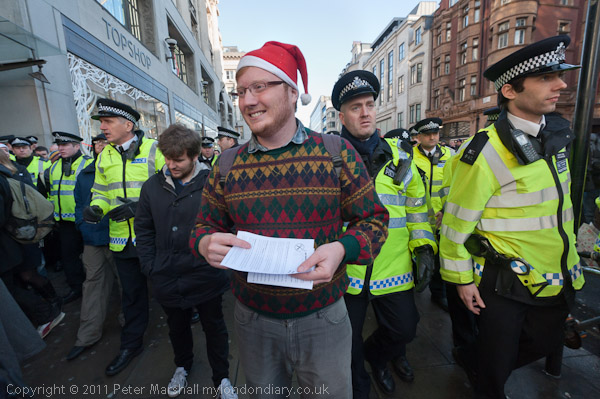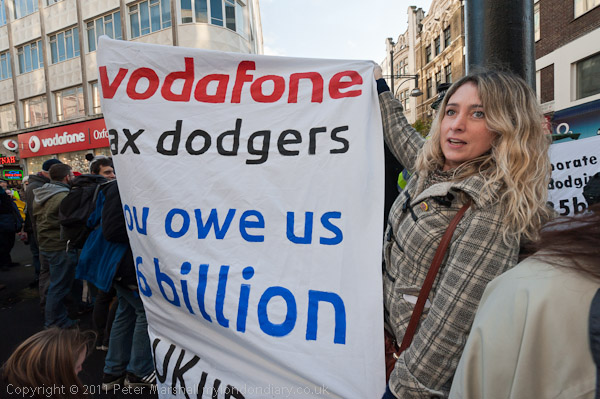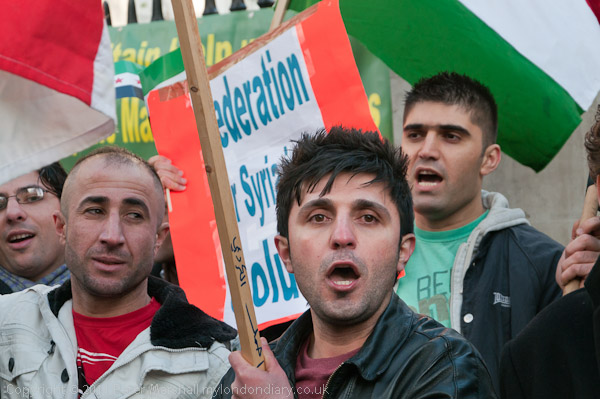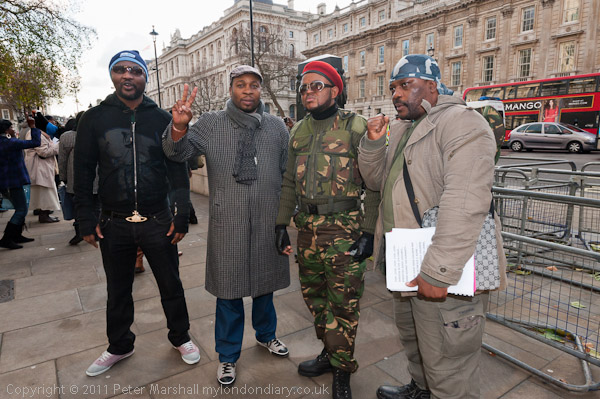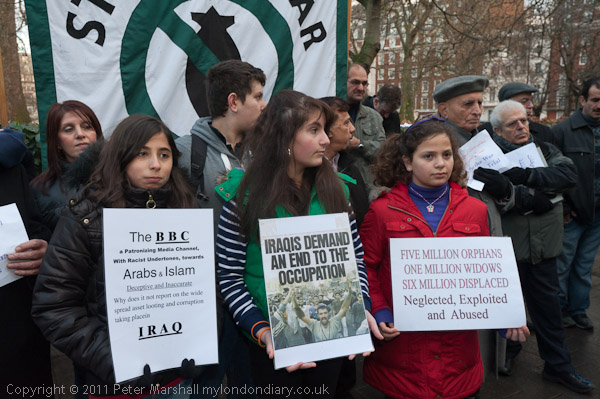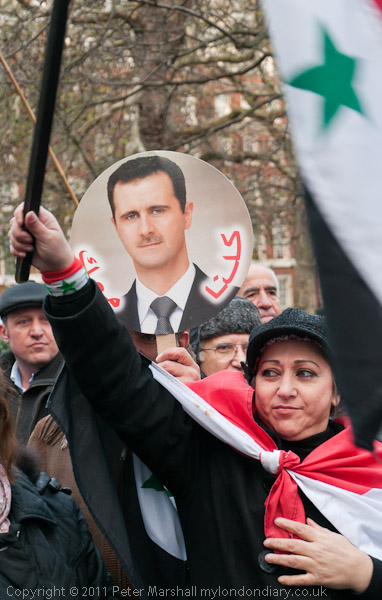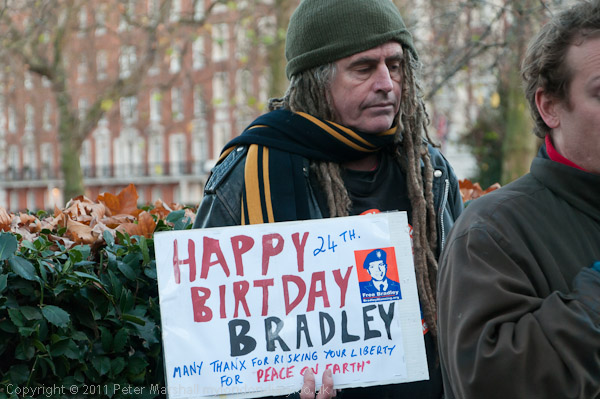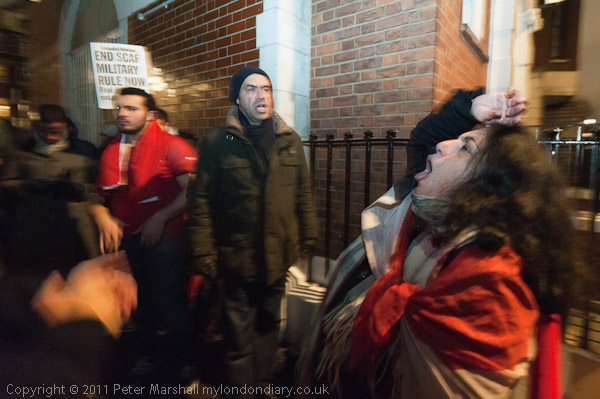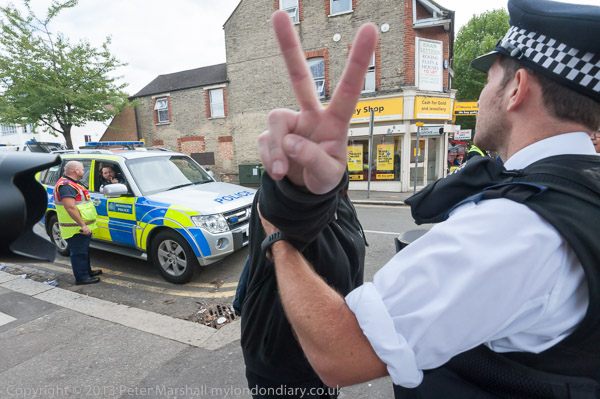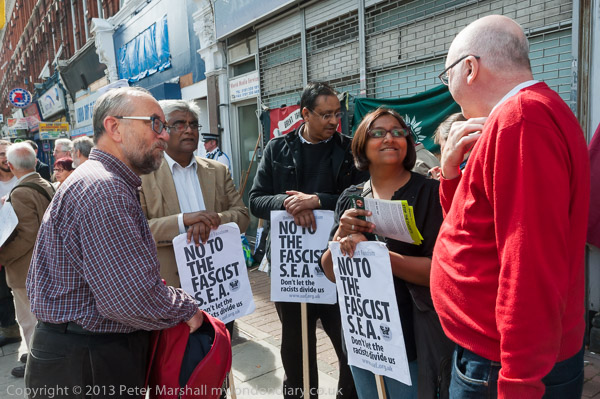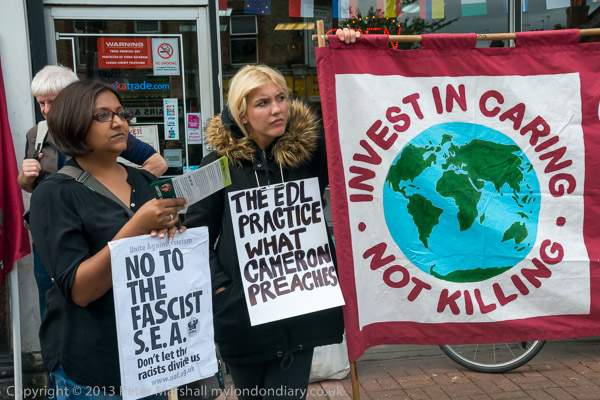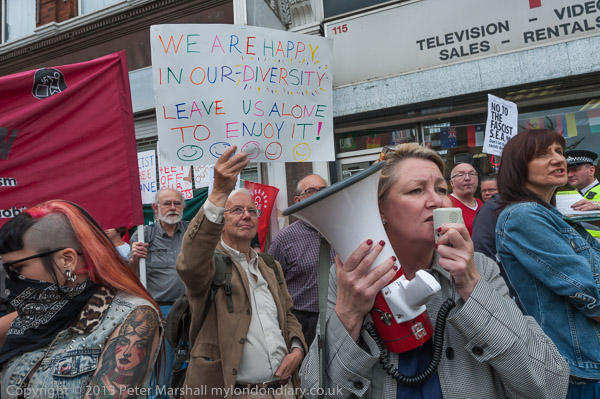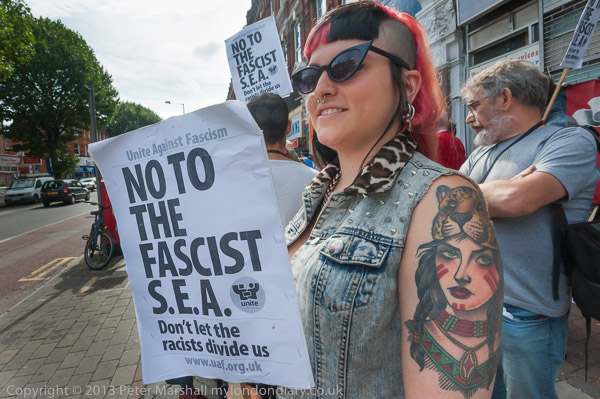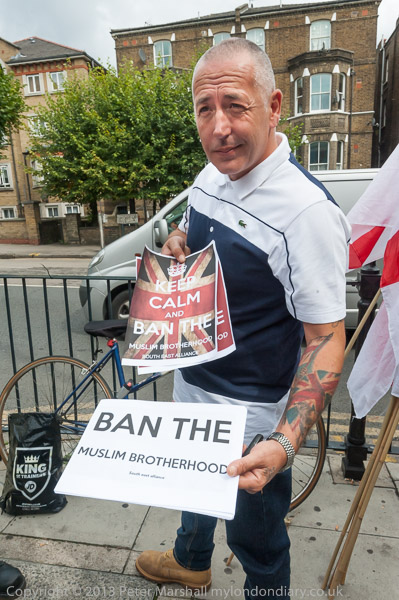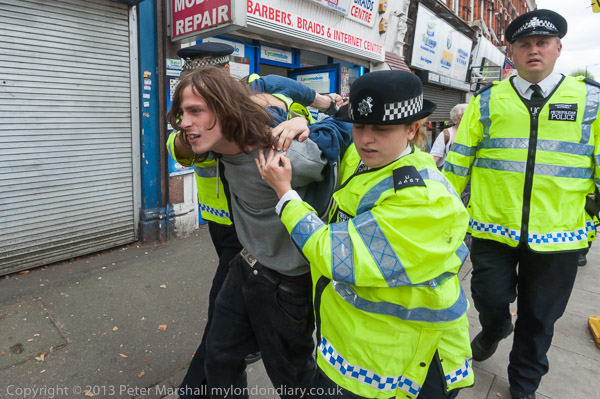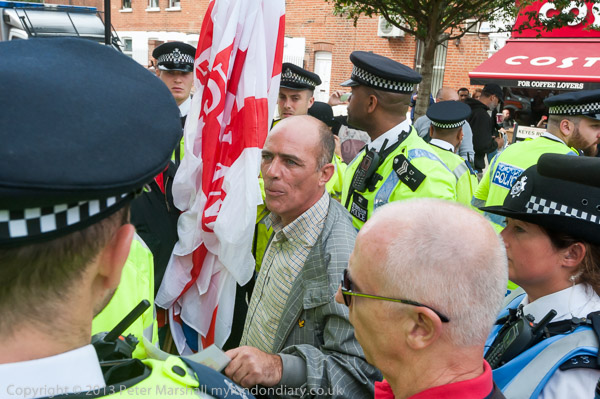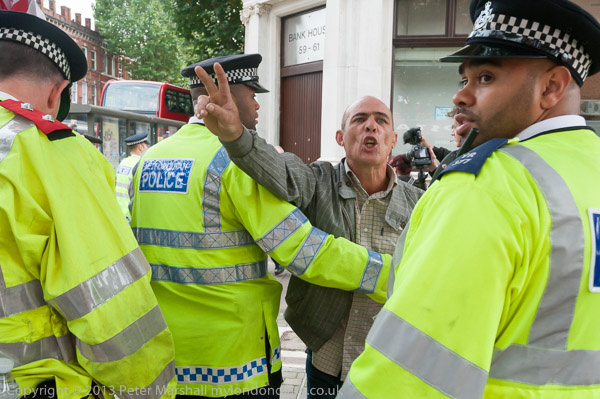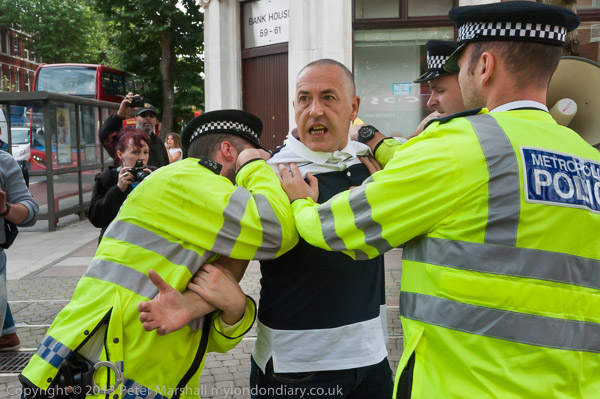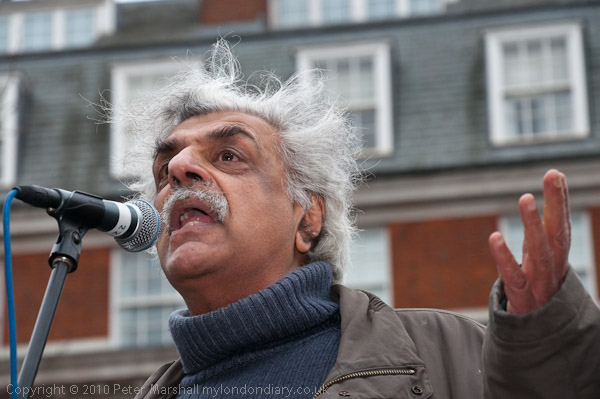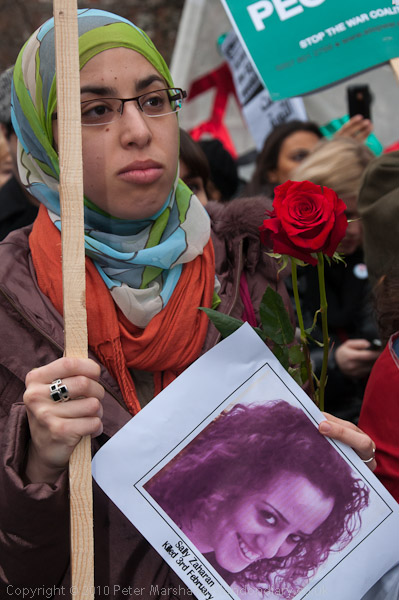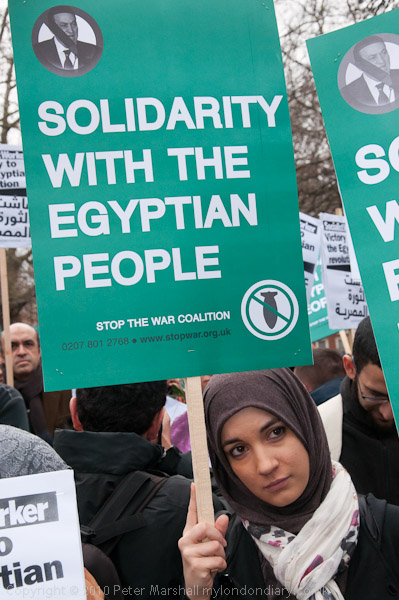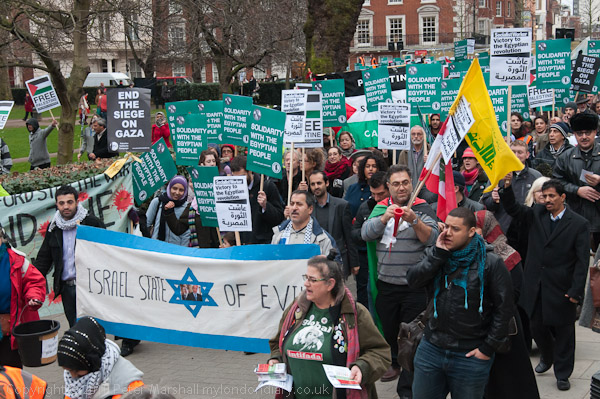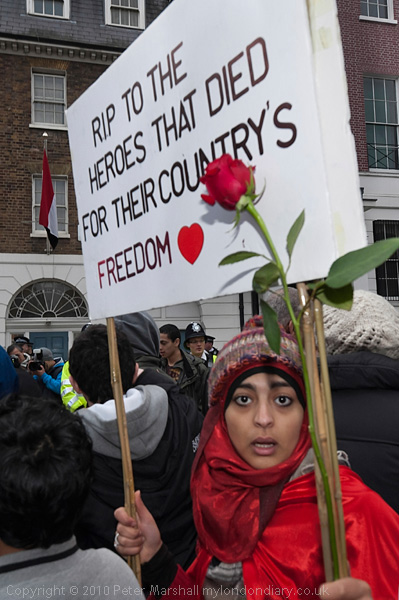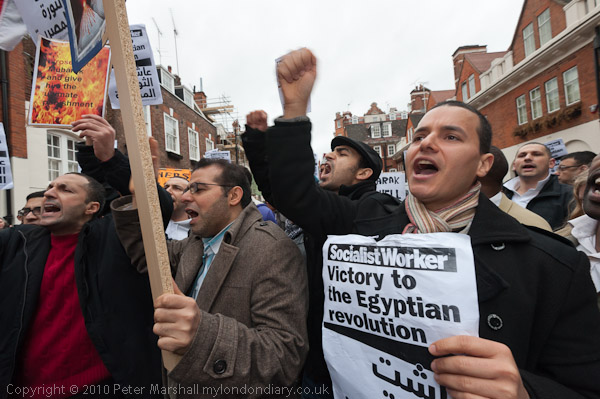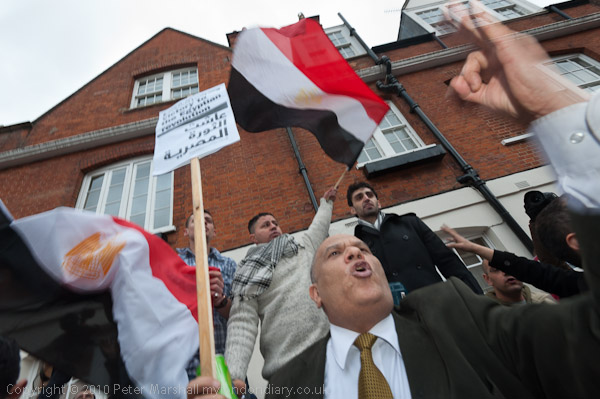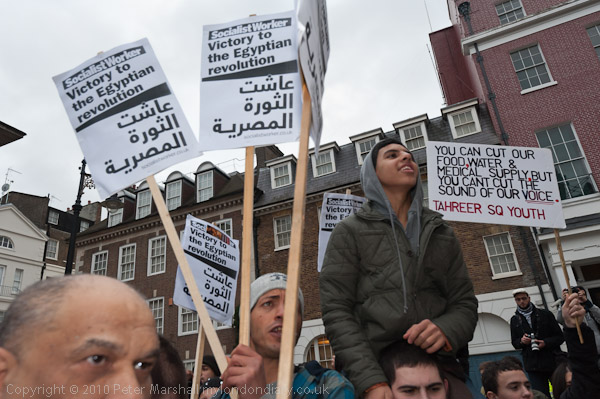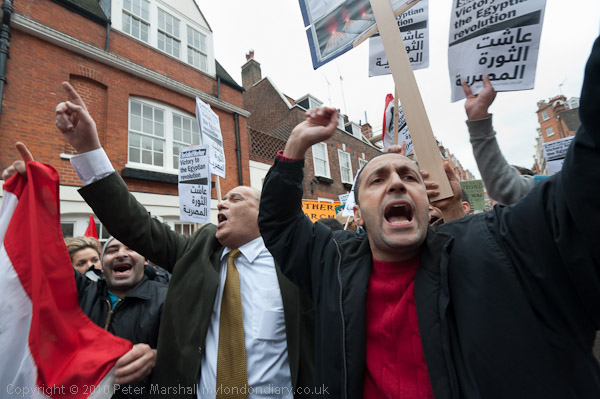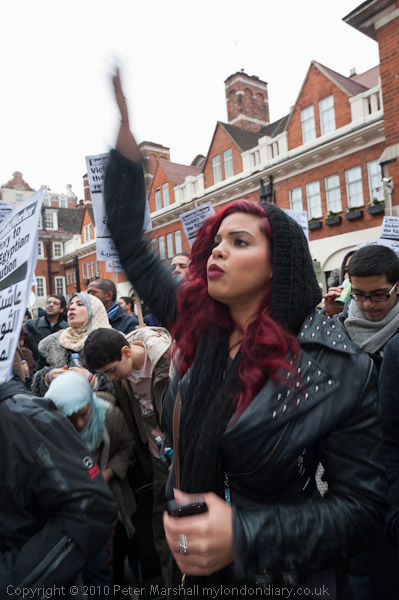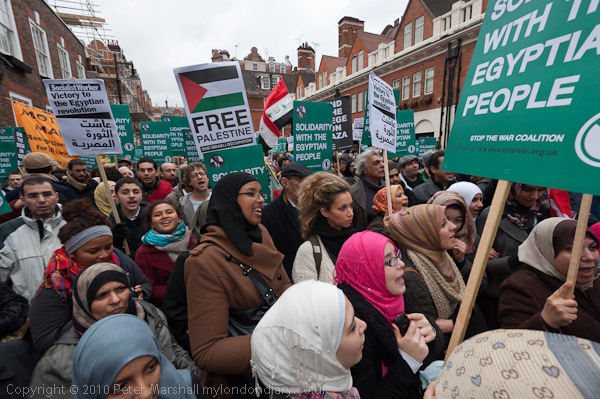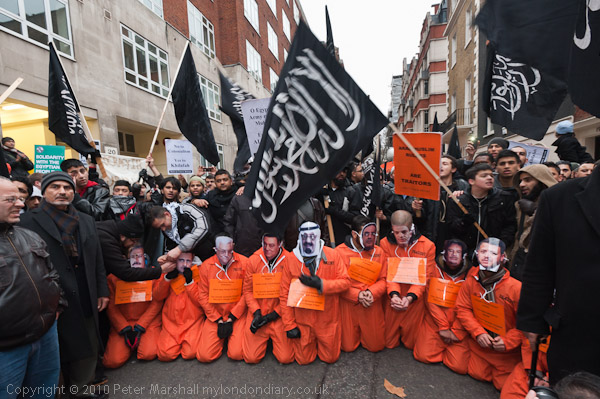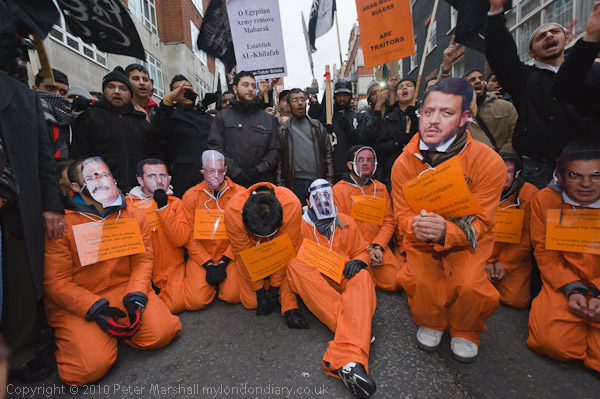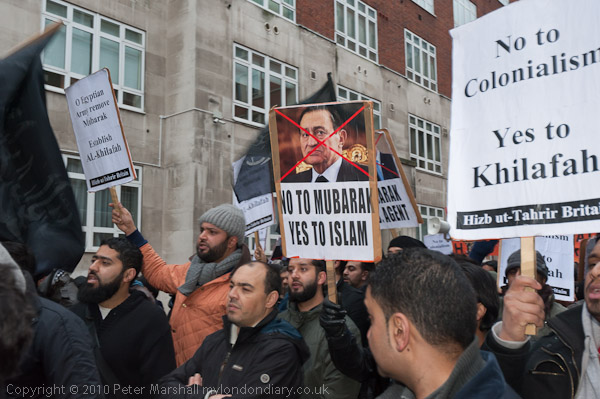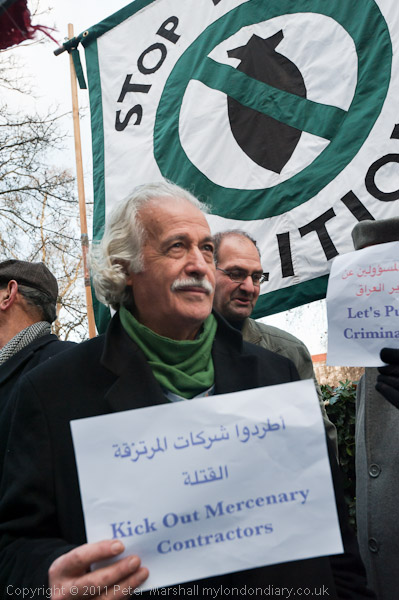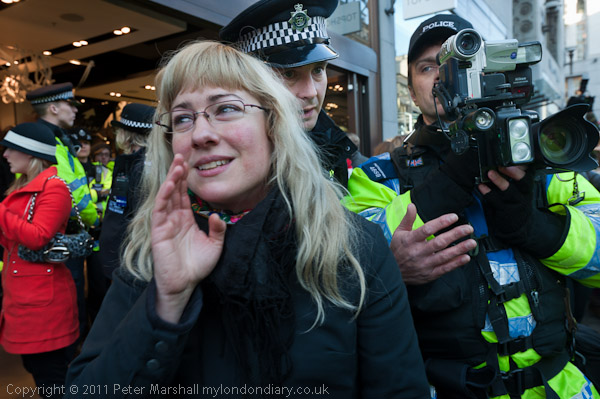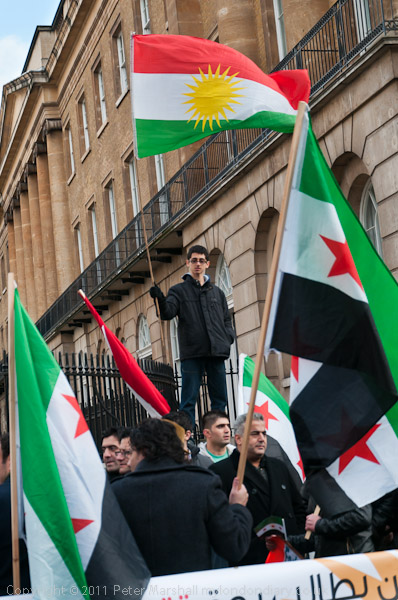Peace, Congo, Iran, Egypt, Bikers, Trafalgar Square: On Wednesday 25th January 2012 I went up to London in the middle of the afternoon and continued to take photographs at various places and events for several hours.
Parliament Square Peace Camp
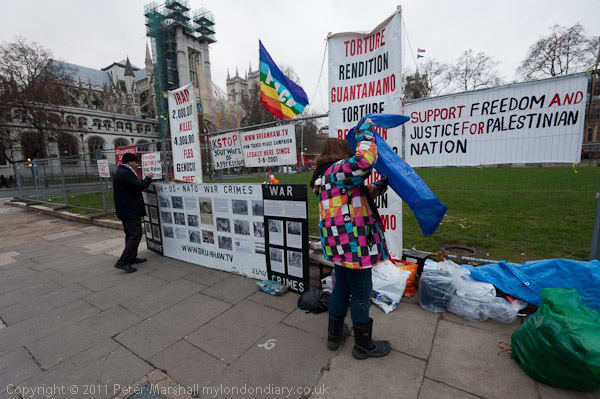
I began with a brief visit to the Peace Camp – as I often had over the years – but found that Barbara Tucker was busy tidying up in anticipation of yet another police raid in their long campaign of harassment of her and here supporters and on this occasion didn’t have time to talk. So I just took a couple of pictures and then walked up to Trafalgar Square. On May 10th 2012 the protest had been 4000 Days in Parliament Square but was evicted shortly after.
Congolese Keep Up Protests – Trafalgar Square
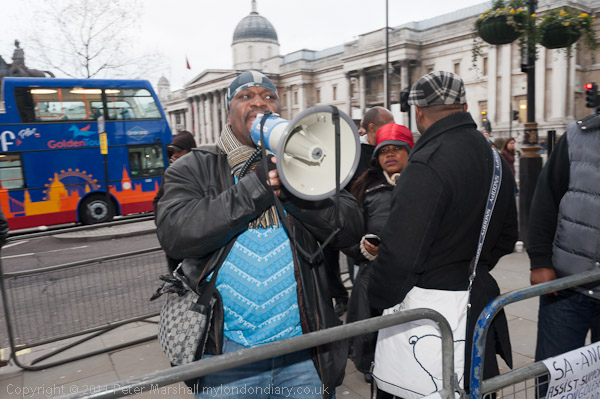
In Trafalgar Square I found a small group of Congolese protesters in a pen on the pavement outside South Africa House, calling on South Africa to put pressure on the Congo regime. They called on South Africa to free political prisoners and recognise opposition leader Étienne Tshisekedi wa Mulumba as the duly elected President of the Democratic Republic of Congo. The 2011 elections were widely regarded as having been fixed and it is unclear whether he or the incumbent Joseph Kabila whose election was confirmed by the Supreme Court of the Democratic Republic of Congo actually got more votes.
The protesters told me that more people were expected to arrive for the protest soon and I promised to return. But I got a little held up elsewhere and by the time I returned everyone had left.
Peace For Iran – No To War – Foreign & Commonwealth Office, Whitehall
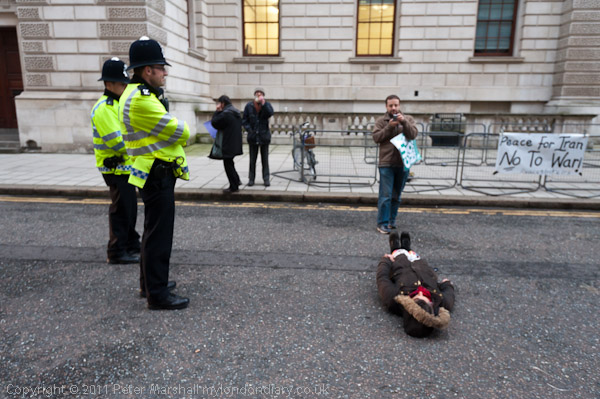
I walked back along Whitehall to the Foreign & Commonwealth Office in King Charles St where a small group were protesting against going to war with Iran, calling for peace.
I waited with the protesters who told me they expected more to arrive, but had to leave after around 20 minutes. I think few were coming as a large protest was to happen a few days later (you can see my report and pictures on this at No War Against Iran & Syria)
Egyptians Protest Against SCAF – Egyptian Embassy
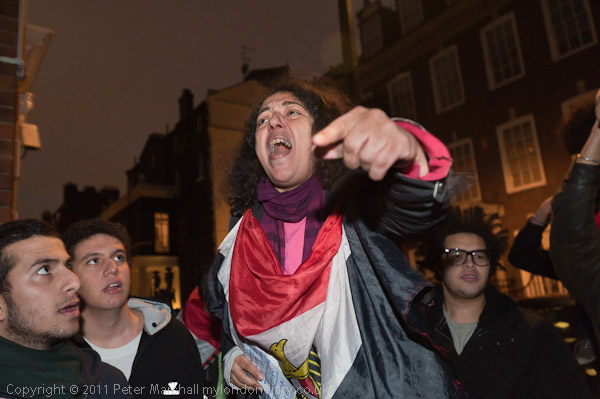
I had to leave to go to the main event I had come into London to report, the protest by Egyptians on the first anniversary of the Egyptian revolution. Egypt was then suffering under the Supreme Council of the Armed Forces (SCAF) and they called for the revolution to continue and an end to military rule.

This was an energetic and protest by over a hundred Egyptians in solidarity with the estimated 300,000 who had marched to Tahrir Square earlier in the day.

A few from the British left had come to give their support, including Chris Nuneham of Stop the War who was one of those who spoke.
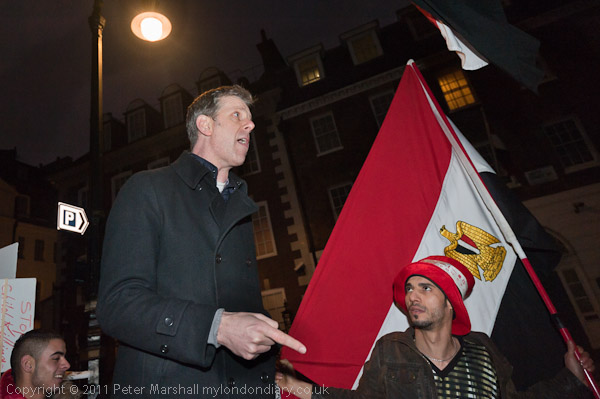
The speakers urged solidarity with the Egyptian people and also with the other revolutions of the Arab Spring, and called for an end to the Western attempts to enforce an agenda on the Arab nations.
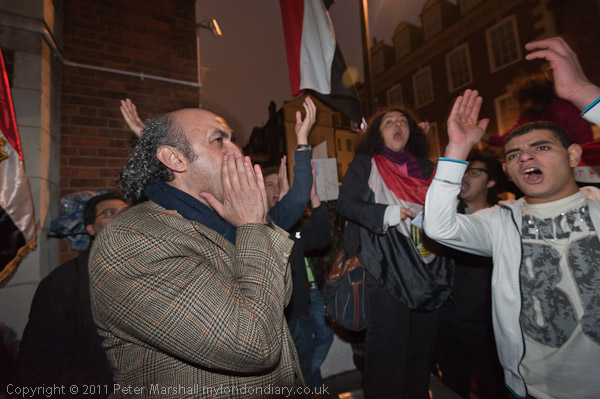
They voiced their opposition to the increasingly likely military action against Iran, and called on those present to join the No War Against Iran & Syria protest at the US Embassy on the following Saturday.

Many more pictures from the Egyptian Embassy protest on My London Diary.
Westminster Bikers First Olympic Jubilee Demo Ride – Trafalgar Square
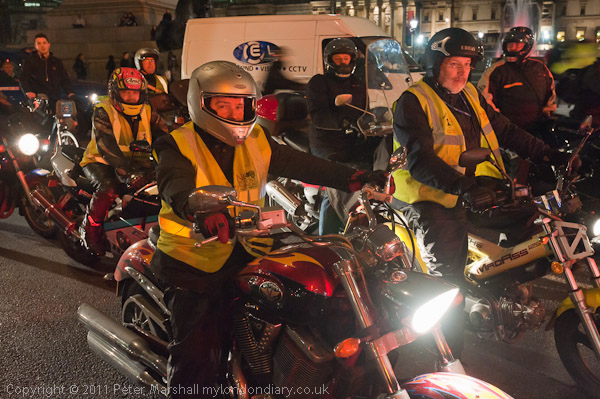
I returned to Trafalgar Square for a protest by motorbike riders, incensed by the so-called experimental parking charges for powered two wheelers.

‘No To the Bike Parking Tax’ see the parking charges introduced by Westminster Council as a simple money-making racket and have been making regular Wednesday protests against it as well as lobbying and making a legal challenge.
The daily fee for parking in a solo motorcycle bay is now only £1, and bikers can move from bay to bay.
Around Trafalgar Square
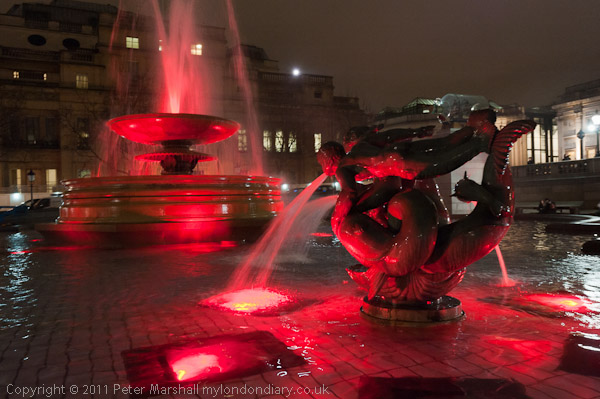
After the bikers rode away I took a few pictures in Trafalgar Square under its dramatic red lighting then walked away. There had been a traffic accident on Northumberland Avenue which seemed to have involved two bikers and a cyclist and the police were now in attendance. I took a single frame as I approached but I didn’t investigate this further, walking down Whitehall.
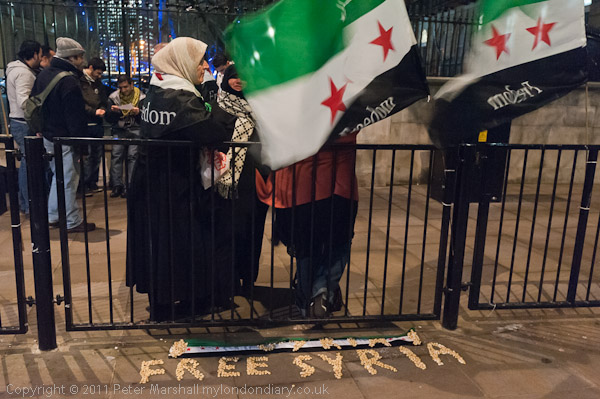
Opposite Downing St a small protest was taking place calling for Freedom for Syria from the Assad regime, but nothing much was happening there and after making a couple of pictures I moved on, now in a hurry to get home and have something to eat.
You can read and see more pictures of these events on the January 2012 page of My London Diary
Flickr – Facebook – My London Diary – Hull Photos – Lea Valley – Paris
London’s Industrial Heritage – London Photos
All photographs on this page are copyright © Peter Marshall.
Contact me to buy prints or licence to reproduce.
